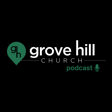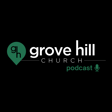
How to Find Truth In An Age of Noise #ScriptureUnfiltered
Welcome to another episode of Scripture Unfiltered, where Pastor Ridley Barron and co-host Dan Sanchez unpack last week's sermon series on absolute truth, exploring the challenges of navigating faith amidst a cacophony of messages and the importance of anchoring in the foundational truths of the scripture. As they sift through cultural influences and contemporary church movements, they invite listeners to engage in a journey of humility, critical thinking, and scriptural wisdom to unite the church and powerfully advance the gospel beyond all borders.
Timestamps:
00:00 Increasing blending of faith backgrounds requires caution.
04:54 Childhood admiration turns to skepticism in adulthood.
07:57 Postmodernism questioned existence of absolute truth.
11:18 Understanding the basis for our beliefs.
14:45 Struggling to find truth, importance of foundational pillars.
17:06 Respecting ancient traditions while balancing necessary change.
21:24 Honest seeker finds truth in reading God's word.
25:42 Struggling with skipping passages, turned back to Bible.
27:06 Christianity centered on core values, not externals.


